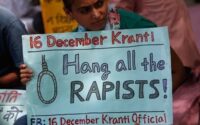Concentrated Hurdle: Caste
“The taste of anything can be changed. But poison cannot be changed into nectar’’
– B.R. Ambedkar
Caste is a huge hurdle and we may say that it is a permanent hurdle in the progress of our nation, and approx 29-30 years after the law to safeguard the scheduled caste and scheduled tribes came into existence, the Supreme Court diluted one of its provisions.
The apex court issued a number of guidelines on 20 March, that would protect public servants and private individuals from arbitrary and instant arrest under the SC and ST (Prevention of Atrocities) Act. There was an advice given by the central government to the top court to recall the judgment.
Perception of the Act
The 1989 Act, which was revised in 2015, punished caste libel and refused anticipatory bail to the accused. Constructing the Act more demanding, the SC and ST Amendment Act,2015 adjoin the action like the shaving of the heads or a part of the body for religious rites such type of act are disparaging the dignity of fellows of Scheduled Caste and Scheduled Tribes, now onward they were also treated as atrocities.
“Notwithstanding diverse parameter to improve the social and economic condition of the SCs and STs, they stay unsafe (unprotected) they denied various civil rights.
Supreme Court on 20, March 2018
“Innocent citizens are termed accused, which is not intended by the legislature. The legislature never intended to use the atrocities Act as an instrument to blackmail or to wreak personal vengeance.”
-SC Judgment
The court was of the view that false complaints were filed against innocent people to promote caste hatred. It is important to express effects that working of the Atrocities Act should not amount to the result of perpetuating castes which can have a reverse effect on the merger of the society and the constitutional values.
The court was hearing a petition filed by Subhash Mahajan, Maharashtra’s Director of Technical Education, who had confronted a Bombay High Court judgment. The High Court rejected a petition to quash the objection filed against Mahajan by Bhaskar Gaikwad, for consisting inverse entries in Gaikwad’s Annual Confidential Report. Gaikwad had contended that Mahajan was not allowed to deal with his concerned application as it could be meant to deal with the state government lonely.
Altering the judgment, the Supreme Court said the advancing was a “clear abuse of process of court’’ and said that law is being misled for various decades since it came into existence.
Decline to be with Gujarat High court order
Even after the unfavorable action of political parties and citizens, the Supreme Court in hearing a case declined to be with Gujarat High Court order giving bail to 2 builder accused of assaulting a Dalit man. The high court had granted anticipatory bail to them, relying on the Supreme Court’s order of 20th March.
The panel of Chief Justice Dipak Mishra and Justices A.M. Khanvilkar & D.Y. Chandrachud, issued a notice to the accused and the Gujarat Government.
Statistics Analysis
Alleging of “abuse of law” by the top court, official data poke at a weak execution of the Act instead of its misuse, low rate of conviction and high crimes against the SCs and STs. According to the National Crime Records Bureau, crimes against SCs has gone up by 5.5% in the year 2016.The figures which were 38,671 in 2015 has gone up to 40,801 in 2016. In case of Scheduled Tribes, the numbers indicate of 4.6% from 2015 to stand at 5579 in the year 2016. By analyzing the data shown under the Act, 1989, the charge sheet rate of 78%, and the conviction rate was only 15.6%.
A renowned journalist who is known for his voices for Dalits ‘Dilip C Mandal’ said “these figures mean that the law is not implemented properly & investigating agencies don’t do their duties properly. The top court could direct the government to arrange the right execution of this law. But instead, the court decided to weaken the law itself.”
Writer and social activist Kancha said “it is not easy for the lower caste to get justice on time because the ones at the top are also reluctant to the investigation scheduled caste and scheduled tribe cases efficiently.’’
 Niharika Verma is a 2nd year BA LL.B student of Modi University, Sikar.
Niharika Verma is a 2nd year BA LL.B student of Modi University, Sikar.


